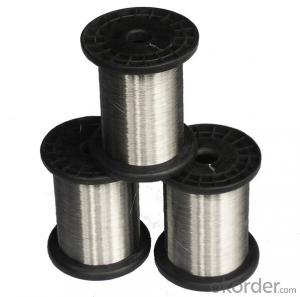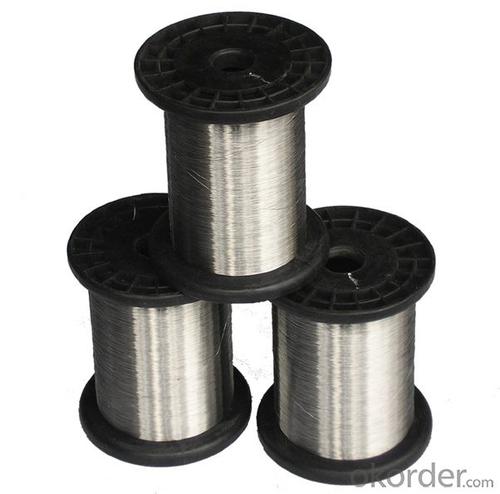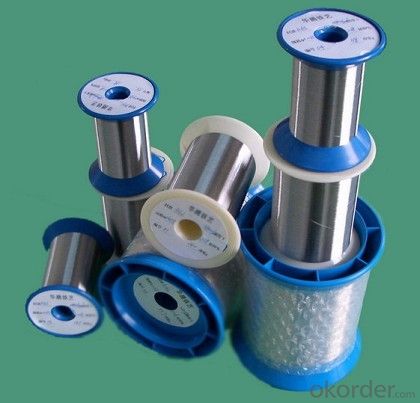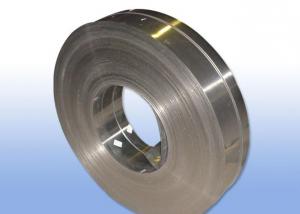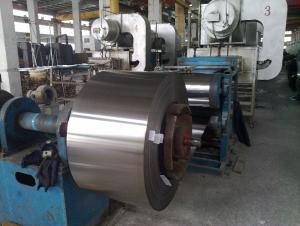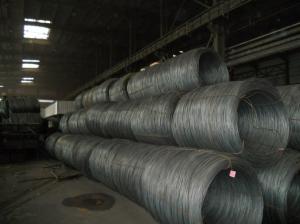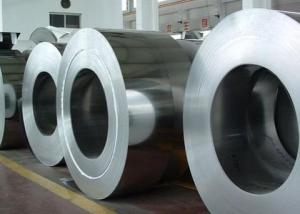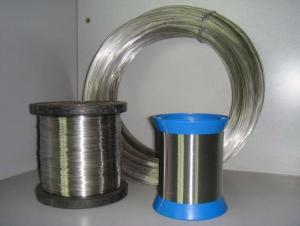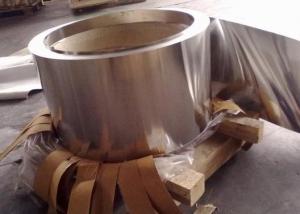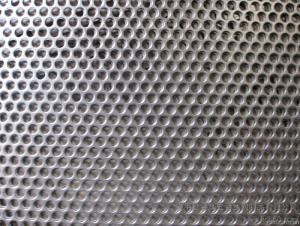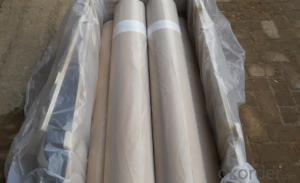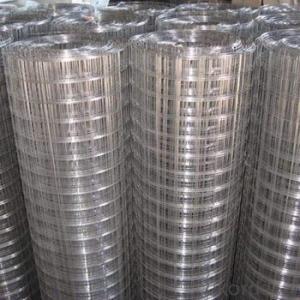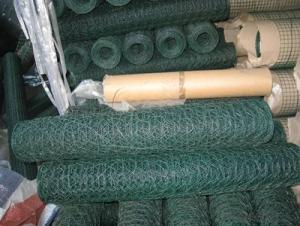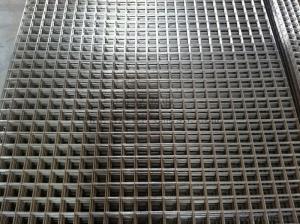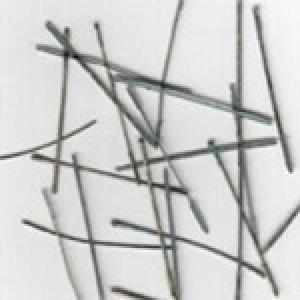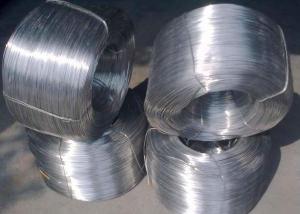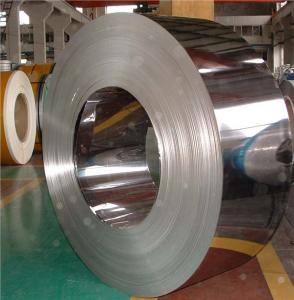wire mesh stainless steel in heavy duty
- Loading Port:
- Qingdao
- Payment Terms:
- TT OR LC
- Min Order Qty:
- 10 m.t.
- Supply Capability:
- 1000 m.t./month
OKorder Service Pledge
OKorder Financial Service
You Might Also Like
heavy duty wire mesh stainless steel
Chemical composition of stainless steel wire:
AISI Grade | Chemical Composition(%) | |||||||
| C | Si | Mn | P | S | Ni | Cr | Mo | |
| 304 | ≤0.08 | ≤1.00 | ≤2.00 | ≤0.045 | ≤0.030 | 8.00~10.50 | 18.00~20.00 | - |
| 304H | >0.08 | ≤1.00 | ≤2.00 | ≤0.045 | ≤0.030 | 8.00~10.50 | 18.00~20.00 | - |
| 304L | ≤0.030 | ≤1.00 | ≤2.00 | ≤0.045 | ≤0.030 | 9.00~13.50 | 18.00~20.00 | - |
| 316 | ≤0.045 | ≤1.00 | ≤2.00 | ≤0.045 | ≤0.030 | 10.00~14.00 | 10.00~18.00 | 2.00~3.00 |
| 316L | ≤0.030 | ≤1.00 | ≤2.00 | ≤0.045 | ≤0.030 | 12.00~15.00 | 16.00~18.00 | 2.00~3.00 |
| 430 | ≤0.12 | ≤0.75 | ≤1.00 | ≤0.040 | ≤0.030 | ≤0.60 | 16.00~18.00 | - |
| 430A | ≤0.06 | ≤0.50 | ≤0.50 | ≤0.030 | ≤0.50 | ≤0.25 | 14.00~17.00 | - |
Stainless Steel Hard Wire
Use: steel rope , steel brush, spring , stapler, etc.
Size: from 0.05mm to 5mm
Soft stianless steel wire
Use: Knitted wire mesh, weaving wire mesh, filtration mesh, high pressure pipe
Size: from 0.07mm -0.60mm
| Standard: | AISI,ASTM,DIN,EN,GB,JIS |
Deviation (mm) | Standard | |
Tolerance (mm) | Max.Deviation (mm) | |
0.32-0.45 | ±0.006 | ±0.006 |
0.50-0.75 | ±0.006 | ±0.006 |
0.80-0.95 | ±0.008 | ±0.008 |
1.00-1.25 | ±0.010 | ±0.010 |
1.30-1.50 | ±0.010 | ±0.010 |
1.60-1.80 | ±0.015 | ±0.015 |
2.0-2.5 | ±0.015 | ±0.015 |
3.0-4.0 | ±0.015 | ±0.015 |
- Q: Formula for calculating weight of stainless steel wire
- Stainless steel rod, steel wire, theoretical calculation formula* diameter * diameter * 0.00609 = kg/m (for 410420 420J2 430431)For example: of 5050 * 50 * 0.00609=15.23Kg/ M* diameter * diameter * 0.00623 = kg/m (for 301303304316 316L 321)For example: of 5050 * 50 * 0.00623=15.575Kg/ MStainless steel profile, theoretical calculation formulaThe six corners of edge to edge bar * * 0.0069=Kg/ MThe square bar edge width * width * 0.00793=Kg/ M
- Q: How is stainless steel wire manufactured?
- Stainless steel wire is manufactured through a process called wire drawing. It begins with stainless steel rods or billets, which are heated and then passed through a series of dies to reduce their diameter. This drawing process is repeated multiple times until the desired wire diameter is achieved. The wire is then annealed to relieve any stress and improve its ductility. Finally, it undergoes various finishing processes, such as cleaning, coating, and spooling, before being ready for use.
- Q: Is stainless steel wire suitable for wire rope sleeves?
- Yes, stainless steel wire is suitable for wire rope sleeves. Stainless steel wire is known for its high strength, corrosion resistance, and durability, making it an ideal choice for applications that require strong and long-lasting wire rope sleeves. Stainless steel wire rope sleeves provide excellent protection and support to wire ropes, ensuring their reliability and longevity in various demanding environments such as marine, construction, and industrial settings. Additionally, stainless steel wire rope sleeves are also resistant to high temperatures, making them suitable for applications where heat resistance is required.
- Q: How does stainless steel wire compare to galvanized wire?
- Stainless steel wire is generally considered to be more durable, corrosion-resistant, and aesthetically pleasing compared to galvanized wire. It is able to withstand harsh weather conditions and has a longer lifespan. On the other hand, galvanized wire is more economical and commonly used for applications where corrosion resistance is not a primary concern.
- Q: Can stainless steel wire be used for wire rope grips?
- Wire rope grips can indeed utilize stainless steel wire. Stainless steel possesses exceptional strength and corrosion resistance, rendering it a fitting choice for wire rope grips. Industries like marine, construction, and rigging often rely on stainless steel wire rope grips due to their indispensable durability and reliability. With their stainless steel composition, these wire rope grips effectively endure harsh environmental conditions and fend off rust and corrosion, thus guaranteeing a secure and enduring grasp on the wire rope.
- Q: What are the different types of stainless steel wire used in wire baskets?
- There are several different types of stainless steel wire that are commonly used in wire baskets. These types include: 1. 304 Stainless Steel Wire: This is the most common type of stainless steel wire used in wire baskets. It is a versatile and corrosion-resistant material that offers good strength and durability. It is suitable for a wide range of applications and is often used in general-purpose wire baskets. 2. 316 Stainless Steel Wire: This type of stainless steel wire is known for its superior corrosion resistance, especially in environments where there is exposure to saltwater or acidic substances. It is commonly used in wire baskets that are intended for use in marine or coastal environments, as well as in industries such as food processing or pharmaceuticals. 3. 430 Stainless Steel Wire: This type of stainless steel wire is less corrosion-resistant compared to 304 and 316 stainless steel. However, it is still suitable for certain applications where corrosion is not a significant concern. It is often used in wire baskets for industrial purposes, such as storing and transporting heavy items. 4. 302 Stainless Steel Wire: This type of stainless steel wire offers excellent strength and toughness. It is commonly used in wire baskets that require high tensile strength and resistance to deformation. It is often used in applications such as parts storage, material handling, or in the automotive industry. 5. 201 Stainless Steel Wire: This type of stainless steel wire is less commonly used in wire baskets compared to the previous types mentioned. It has lower corrosion resistance and strength compared to 304 stainless steel wire. However, it is still suitable for certain applications that do not require high corrosion resistance, such as wire baskets used for general storage or retail displays. Overall, the choice of stainless steel wire for wire baskets depends on the specific requirements of the application, including factors such as corrosion resistance, strength, and environmental conditions.
- Q: What are the standard spool sizes for stainless steel wire?
- The standard spool sizes for stainless steel wire vary depending on the specific application and manufacturer. However, common spool sizes for stainless steel wire range from 1 lb (0.45 kg) to 1000 lbs (453.5 kg) or more.
- Q: What are the different types of stainless steel wire ropes slings?
- Various stainless steel wire rope slings are available to cater to specific applications and requirements. Some commonly used types include: 1. Single Leg Slings: These slings comprise a single length of stainless steel wire rope with an eye at one end and a hook or another fitting at the opposite end. They are typically used for lighter loads and offer flexibility and user-friendliness. 2. Multiple Leg Slings: These slings consist of two, three, or four legs connected to a master link or a common point. They provide enhanced stability and load distribution, making them suitable for heavier loads. 3. Bridle Slings: Bridle slings feature two or more legs attached to a single master link or fitting. This arrangement allows for a balanced lift and is commonly used when precise load control and stabilization are necessary. 4. Endless Slings: Also known as grommet slings, endless slings are made from a continuous loop of stainless steel wire rope. They offer flexibility in terms of length adjustment and configuration, making them versatile for various lifting applications. 5. Adjustable Slings: These slings are equipped with fittings that facilitate easy adjustment of the sling length. They are ideal for situations where the load height or configuration may vary, providing versatility and convenience. 6. Choker Slings: Choker slings are designed to be wrapped around the load and connected back to themselves, creating a choke point. They provide a secure grip on cylindrical or irregularly shaped loads and are commonly used in rigging and hoisting applications. 7. Basket Slings: Basket slings create a basket-like configuration around the load, offering support and stability. They are suitable for lifting loads with large surface areas or irregular shapes. It is crucial to select the appropriate type of stainless steel wire rope sling based on the specific requirements of the lifting operation, such as load capacity, configuration, and environmental conditions. Seeking guidance from a qualified professional or referring to industry standards and guidelines can ensure the right choice is made.
- Q: Can stainless steel wire be used for wire sculpture?
- Yes, stainless steel wire can be used for wire sculpture. It is a popular choice among artists due to its durability, strength, and resistance to corrosion. Stainless steel wire allows for intricate and detailed sculptures that can withstand various weather conditions, making it suitable for both indoor and outdoor displays.
- Q: Is stainless steel wire resistant to rust?
- Yes, stainless steel wire is highly resistant to rust. This is due to the composition of stainless steel, which contains a minimum of 10.5% chromium. The chromium forms a protective layer on the surface of the wire, known as a passive layer, that prevents oxygen from reacting with the iron in the steel. This passive layer acts as a barrier against corrosion, making stainless steel wire highly resistant to rust and providing excellent durability and longevity in various environments.
Send your message to us
wire mesh stainless steel in heavy duty
- Loading Port:
- Qingdao
- Payment Terms:
- TT OR LC
- Min Order Qty:
- 10 m.t.
- Supply Capability:
- 1000 m.t./month
OKorder Service Pledge
OKorder Financial Service
Similar products
Hot products
Hot Searches
Related keywords
